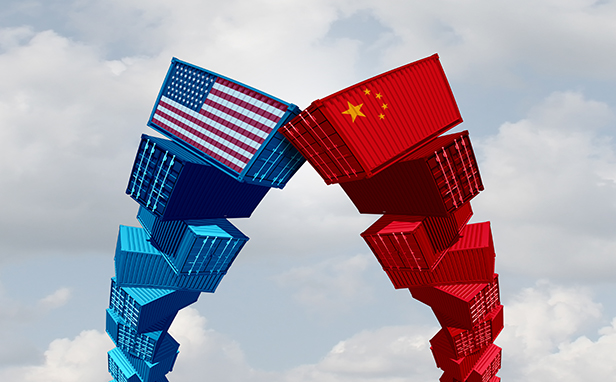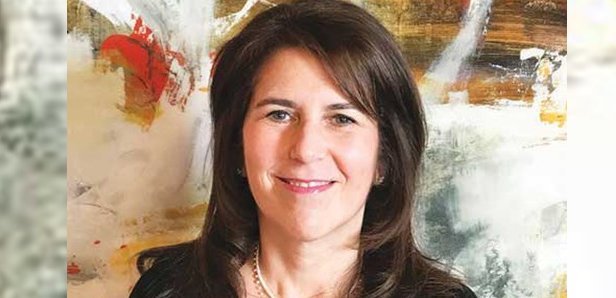May 15, 2019
Promo Prices Poised to Rise Amid Heightened Tariffs
Many industry firms feel tariffs could hurt the general economy and cut into promo’s sales and profits during the second half of the year.
If inevitability had a sound, it was the ping of the supplier’s email into the Top 40 distributor executive’s inbox late Tuesday afternoon. The message manifested the fears troubling promo professionals since last Friday when President Donald Trump made good on his threat to increase, from 10% to 25%, the tariffs on $200 billion worth of Chinese imports.
As a result of the escalated tariffs, the supplier said that “in the next coming weeks, as our imports are received, we will be increasing prices from 10% to 20%.”

While percentages are sure to vary depending on product and company, Counselor’s interviews with a wide selection of industry suppliers this week indicate that prices on China-made products impacted by the heightened tariffs will be increasing in the weeks and months ahead as suppliers replenish stock with freshly imported items now subject to the heavier levy.
The vast majority of the promotional products distributors sell in the U.S. are produced in China.
Bags that include backpacks and totes, mugs, other types of drinkware (including stainless-steel tumblers), stationery, hand sanitizers, headwear, various apparel items, leather products, sunscreen, most metal products, technology items/electronics such as charging cables, and more are a sampling of the products likely to be hung with steeper price tags, industry sources told Counselor.
“Unfortunately, price increases are unavoidable given the extent of the tariffs,” said David Nicholson, president of Top 40 supplier PCNA, which expects to increase pricing come July 1st should the 25% rate remain.
Another $300 Billion of Imports Could Be Tariffed
Should Trump decide to implement a 25% tariff on an additional $300 billion or so of Chinese imports, as he’s considering doing possibly by next month, then virtually every promotional product imported from China would be subjected to tariffs, likely triggering price increases on that sweeping spectrum of items. Products the administration is considering tariffing include calendars, swimsuits, various coats, bathrobes, baby garments, track suits, yoga pants, all manner of T-shirts, ties, gloves, blankets, golf balls, umbrellas, stemmed glassware – and much more, as this full list details.
The Trump administration is preparing a new list of about $300,000,000,000 worth of Chinese imports that would be hit with tariffs, after China retaliated Monday in the trade war. https://t.co/An3ARMmcL3
— NPR (@NPR) May 15, 2019
“This is pretty distressing for all of us,” said Eddie Blau, CEO of Top 40 supplier Innovation Line (asi/62660). “The unknown of this new reality adds a lot of stress and anxiety.”
Still, not all promo companies are sweating the tariffs. Suppliers that specialize in Made-in-the-USA products, for instance, say they offer an increasingly attractive alternative that includes pricing stability. “Those of us who have made the financial investment in our tooling and production facilities are ready and willing to supply reasonably priced, well-made products with short lead times,” said Laurie Woodruff Jackson of Santa Ana, CA-based WOODY’Z (asi/98175).
Particulars on Promo Price Increases
As of now, pinning down an exact projected industry-wide price increase range on China-imported products is difficult. Some suppliers say they simply don’t know what their hikes will be yet. Even so, distributors and other suppliers Counselor spoke with filled in some of the details of the emerging tariff-fueled price hike picture.
Gregg Emmer, vice president and chief marketing officer at Top 40 distributor Kaeser & Blair (asi/238600), said that the majority of the dozen or so suppliers he’s heard from on tariffs say they’ll be passing along a 10% price increase on levied products. Bob Herzog, CEO of Top 40 firm Corporate Imaging Concepts (asi/168962), said he’s so far heard from only one supplier, which also put the increases on impacted products at about 10%.
Brandon Mackay, CEO of Top 40 supplier SnugZ/USA (asi/88060), said that prices on import-levied items, such as certain lanyards, could potentially go up 3% to 4%. It’s a complicated calculation for SnugZ, though, because the firm builds product stateside, using components from China and elsewhere. “We’re tariffed only on the component from China and not the finished goods,” Mackay said.

Brandon Mackay, SnugZ/USA
Howard Potter, CEO of A&P Master Images (asi/102019), a $2 million distributorship in western New York, said he’s heard 3% to 5% from some suppliers. Still, Potter noted some have already increased prices 15% from the beginning of the year. “There are definitely some suppliers out there using tariffs as an excuse and taking advantage of the situation to raise prices,” said one industry executive on condition of anonymity.
Softening The Blow
Nonetheless, many supplier executives said they’re doing everything they can – including eating margin to absorb increases – to minimize price impacts, as it’s in their best interest to be as cost-competitive as possible. “We’re working with our overseas suppliers now to seek more concessions on price, but it’s likely they’re tapped out on that front after the initial 10% tariffs,” Blau told Counselor. “Like others, we will look to move parts of our supply chain to other countries.”
“Our industry is resilient and creative. We will get through this.” — Bill Korowitz, The Magnet Group.
Indeed, the tariffs fiasco has caused sourcing/supply chain headaches, hastening suppliers’ efforts to diversify into production locations beyond China’s borders. “We’ve been moving more production out of China and have set up sourcing offices in several key countries,” said Nicholson. “While this has helped, this is limited to select categories and has been challenged by the availability of capacity in these other countries. We’re continuing to explore ‘next frontier’ production locations aggressively.”
Of course, distributors are taking proactive steps to lessen the already-occurring impact of tariffs on end-clients. “We’re adding notes to all of our client proposals, warning that their products may be subject to government-mandated tariff charges, and we’re working to educate our clients about how this affects the products they order, so they’re not taken by surprise if their items are affected,” said Jamie Stone, president of Seattle-based distributor Gifts by Design (asi/205947). “Getting them to understand that we’re all in this together can be a bonding moment, especially when we offer to split the burden with them.”

Jamie Stone, Gifts by Design.
Meanwhile, Indianapolis-based ScreenBroidery (asi/305623) has been absorbing price changes on quoted jobs and in programs in instances where tariffs have caused prices to increase post-quote or following the agreed fee for the products in the programs. “We’ve also been waiving set-up fees, proof fees, shipping fees, less-than-minimum fees, etc., in order to offset some product price increases. Some suppliers have been great working with us on these fees,” said CEO Thomas Rector. “Also, we’re really pushing highly customized products and brand names where price points are not much of an issue.”
Unfortunately, building custom products in China has been complicated, too, especially on orders distributors already have in production, promo executives said. “Those projects have contracts with clients that have been set at a certain price, and now these new tariffs threaten to raise those prices,” said Stone. “Our clients are upset and don’t feel that they should bear the burden of these additional tariff charges alone, and they want us to split it with them. We’re asking our suppliers to split the additional tariff charges as well. We feel that the burden should be shared equally between supplier, distributor and client.”
Forecast 2019: Uncertainty & Anxiety
So far, tariffs haven’t derailed the U.S. economy or the promotional products market. U.S. GDP in the first quarter was up 3.2%. Similarly, Q1 promo distributor sales increased 3.4%.
Despite those positive performances, there’s broad concern among industry executives Counselor spoke with that softening could begin in the third quarter as tariffs truly take hold. Should Trump institute levies on $300 billion of additional Chinese imports and keep the current tariffs in place, a growing number of promo executives fear the economy could slip into stagnation or recession by the fourth quarter, which they believe would drag significantly on promo industry sales. “If the tariffs stick around, I could see everything really taking a hit in Q4 – retail, food, travel, promo,” said Jason Lucash, SVP of marketing and product development at Top 40 supplier HUB Promotional Group (asi/61966). “A recession could be imminent.”
Still, it’s tough to know how things will go. A couple weeks ago the word from Washington, D.C. was that a trade deal with China was nearly inked. Then China reneged on certain key tenets of the purported near-deal, including those related to what the U.S. sees as intellectual property violations of American companies operating in China. That triggered Trump’s tariff backlash, which was met with retaliatory tariffs from China on Monday. For his part, the president says a deal with China could happen at any time.
....of the tremendous ground we have lost to China on Trade since the ridiculous one sided formation of the WTO. It will all happen, and much faster than people think!
— Donald J. Trump (@realDonaldTrump) May 14, 2019
While tariffs are a challenge, some promo veterans steadfastly believe the industry will collectively overcome. “Our industry is resilient and creative,” said Bill Korowitz, CEO of Top 40 supplier The Magnet Group (asi/68507). “Before tariffs, we had Prop 65. Before that, it was product safety. We will get through this with honest conversation and dialogue. Dialogue takes time, which is the impact to our companies, but we will get through this and move on to the next challenge.”
